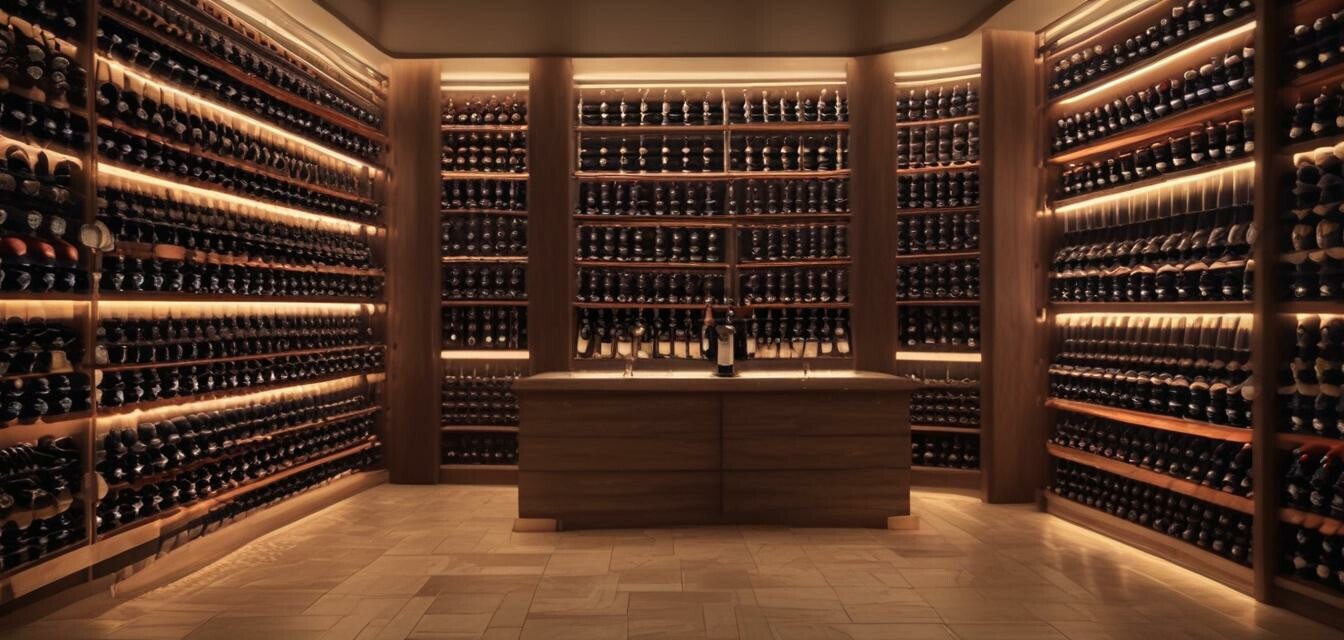
Understanding wine storage temperature: What you need to know
Key takeaways
- The ideal wine storage temperature is typically between 45°F and 65°F.
- Red wines are best stored at slightly warmer temperatures than white wines.
- Temperature fluctuations can negatively affect the quality of wine.
- Using proper wine storage solutions is essential for maintaining optimal conditions.
- Temperature control systems can help create a stable environment for your collection.
When it comes to storing wine, one of the most crucial factors to consider is the temperature. Proper wine storage temperature ensures that your favorite bottles maintain their quality and flavor over time. In this article, we will analyze the importance of wine storage temperature and provide tips on achieving optimal conditions for different wine types.
The importance of wine storage temperature
Wine is a delicate beverage that reacts to its environment. The right storage temperature contributes significantly to the preservation of flavor, aroma, and overall quality. Understanding the nuances of temperature control will help you safeguard your investment in your wine collection.
Why temperature matters
- Temperature affects aging: Wines evolve based on how they are stored. Optimal temperatures encourage proper aging, which enhances flavors.
- Prevention of spoilage: High temperatures can cause wine to spoil. Conversely, too low temperatures can inhibit flavor development.
- Consistency is key: Variations can lead to expansion and contraction of liquid, potentially damaging the cork and allowing air into the bottle.
Optimal storage temperatures for different wine types
| Wine Type | Ideal Temperature Range |
|---|---|
| Red Wine | 55°F - 65°F |
| White Wine | 45°F - 50°F |
| Sparkling Wine | 40°F - 50°F |
| Fortified Wine | 50°F - 60°F |
How to achieve optimal temperatures
Creating the right environment for wine involves several strategies, especially if you have a growing collection. Here are some essential methods to maintain optimal storage temperatures:
- Use a wine fridge: These appliances are specifically designed to keep wine bottles at the correct temperature and humidity levels.
- Install a cellar: If you’re serious about wine collecting, consider a dedicated wine cellar that maintains a stable environment.
- Choose the right location: Store wine in a cool, dark place away from direct sunlight, heat sources, or frequent fluctuations in temperature.
- Monitor temperature: Invest in a reliable thermometer to keep an eye on your storage conditions.
Impact of temperature fluctuations
Fluctuations in temperature can be detrimental to wine storage. Here are some key effects of such variations:
- Wine expansion and contraction can cause the cork to loosen or break, which leads to oxidation.
- Rapid temperature changes can negatively affect the aging process, resulting in loss of flavor.
- Fluctuating temperatures can lead to spoilage, resulting in unpleasant tastes.
Maintaining consistent conditions
To prevent temperature fluctuations, consider the following tips:
Tips for beginners
- Keep bottles stored horizontally to maintain contact between wine and cork.
- Avoid frequently opening the storage space to minimize exposure to changing temperatures.
- Place a small fan in the wine storage area for improved air circulation.
Wine storage solutions
Investing in quality wine storage solutions can make a significant difference in preserving your collection:
- Wine racks: Choose racks that fit your space and collection.
- Wine coolers: Provides consistent temperatures for different wine types.
- Climate control systems: Regulate temperature and humidity levels specifically for wine.
Pros
- Maintaining the right temperature enhances the wine's flavor profile.
- Proper storage protects your investment in your wine collection.
- Consistent conditions reduce spoilage risks.
Cons
- Initial cost for wine storage solutions and fridges can be high.
- Requires some setup and space commitment.
Conclusion
Understanding wine storage temperature is crucial for preserving the quality of your wine collection. Whether you store your bottles in a dedicated wine fridge or a proper cellar, ensuring optimal conditions will enhance your wine-drinking experience. Always remember to monitor your storage temperature and consult reliable resources for the best practices in home wine storage. For more information on finding your ideal wine storage solution, explore our Wine Storage Solutions section.